Chad McDonald will never forget the moment his hockey career flashed before his eyes. Or the pain that flash-froze his mind.
Playing for Ferris State University in a playoff tournament at VanAndel Arena on March 18, 2016, he had just dumped the puck into the corner.
“I was skating hard,” McDonald said. “Another player kind of fell down. I reached out and put my arm on the glass to stop my forward momentum.”
The glass didn’t move. Unfortunately, his elbow did.
“I ended up dislocating my elbow,” he said. “It wasn’t good. I was very out of it and kind of lightheaded because of the pain.”
An ambulance rushed him to Spectrum Health Butterworth Hospital.
“The pain was so excruciating,” McDonald said. “They had to knock me out to put my elbow back in. They told me I should be able to give it a couple of weeks and I could possibly play.”
The Ferris State University hockey team earned a berth in the NCAA Tournament that year. McDonald longed to join them.
“My elbow was splinted and it didn’t hurt as much, so I thought I could possibly play,” he said.
McDonald visited James Lebolt, DO, a Spectrum Health Medical Group orthopedic sports medicine surgeon. Dr. Lebolt ordered an MRI and did a quick read so McDonald would know what kind of injury opponent he was up against.
“As an athlete, you really want answers,” McDonald said. “When you have this small hope you can possibly play, you want to know. I remember sitting in the press box watching practice and being crushed when I read the results on My Health. I was just crushed.”
A shot at surgery
Instead of heading back to the locker room, McDonald would be heading to the operating room for Tommy John surgery. The procedure, named after four-time Major League Baseball pitcher Tommy John, is also known as ulnar collateral ligament reconstruction.
Dr. Lebolt explained that the inside ligament of the elbow had torn, making the elbow unstable and painful with activity. This type of injury is often seen in baseball and softball players, as well as athletes involved in collision sports such as hockey, football, gymnastics and wrestling.
“I was pretty crushed,” McDonald said. “We were getting ready to go to the NCAA tournament. That’s always something you want to play in. I played in it my freshman year. We wanted to get it done as quick as possible because my senior year was coming up, but we had to give it enough time for the swelling to go down. I remember icing my elbow constantly.”
Hearing it would be a projected nine-month recovery felt like a hockey stick striking his spirit. A power play with which he could not compete.
“It’s almost April,” McDonald said. “That puts me into January and I was going to be a senior in the fall. I was overwhelmed with being upset about not being able to play in the tournament and feelings of, ‘Oh my God, my career could be over.’ I didn’t want to sit around for a year and rehab. All these thoughts were going through my mind.”
While his thoughts reeled, his team reeled off wins.
No. 15 seed Ferris State beat No. 2 seed St. Cloud State in Minneapolis.
“It was probably one of the Top 5 upsets in college hockey history,” McDonald said. “I thought, ‘If we make it to Tampa for the Frozen Four, I’m going to have to drive. I can’t fly because surgery is the week of the Frozen Four.’ We ended up losing in the Elite 8 to the University of Denver.”
In early April, McDonald underwent Tommy John surgery, followed by physical therapy at Spectrum Health.
Day after day, grueling hard work. But he never lost site of his end goal. He kept his eye on the puck.
“You go from playing hockey every day to not doing anything,” he said. “When I got hurt, I was at my peak performance. I had my best games at Ferris right before I got hurt. It’s mentally draining, all the thoughts.”
Will he ever play again?
Like the repetitive swing of a hockey stick, his mind swung through two scenarios.
The first: “Am I going to be able to play again?”
The second: “Even if I do play again, am I going to be as good as I was?”
His support system helped see him through.
“Fortunately I had great family support around me,” he said. “And the coaches at Ferris were very supportive, too.”
Dr. Lebolt helped him come up with a successful recovery game plan.
“Dr. Lebolt was so great clearing me when I was ready and not holding me back,” McDonald said. “I have the personality of trying to do too much. He was also good at reining me in. Dr. Lebolt truly cares for his patients and I would recommend him to any athlete that experiences injury.”
McDonald started physical therapy at Spectrum Health with Jolene Bennet.
“She came highly recommended for athletes looking to return to top performance,” he said.
McDonald moved back home with his Battle Creek family for the summer, getting help from his sister, Cassie, who at the time was a physical therapy student at Grand Valley State University.
“I was working out on my own trying to do everything I could to get ready for the season,” he said. “I worked my butt off that summer and came back in just under six months. I had a goal of playing in the first home game against Alabama Huntsville and I did that.”
During his third game back against Western Michigan University, a team he watched growing up, he scored a goal.
“It was kind of a surreal moment with a lot of friends and family watching,” he said. “As the year went on, I got better and better.”
McDonald went on to earn recognition as Senior Class All-American and Western Collegiate Hockey Association Student Athlete of the Year.
The French connection
McDonald signed a contract with the top French hockey league and played for the Gap Rapaces for nine months.
This season, he’ll be playing forward for the Kalamazoo Wings just 25 minutes from his hometown Battle Creek. The K-Wings are part of the East Coast Hockey League, a AA farm system for the National Hockey League.
“The guy I’ve been working out with since I was 18 years old, he’s the strength coach for the K-Wings,” McDonald said. “I had offers to go back overseas, with offers from France, England, Norway and Germany, but I’m very close with my family. I wanted to be closer to home.”
McDonald said it will be a surreal experience when games begin in mid-October. Although he’s been accepted into law school at Michigan State University, McDonald said his first love is still hockey.
“I’m happy I have law school in my back pocket, but I’m still very in love with playing hockey,” he said. “I’m just excited to be able to do that while being close to home and playing in front of my friends and family. That’s something not a lot of people have the opportunity to do. When I was younger, I played youth and junior hockey for the K-Wings. Now, I’m playing for the regular K-Wings. It’s kind of surreal.”
Dr. Lebolt said he’s impressed with McDonald’s progress.
“As an athlete he was motivated to return to high-level athletics, which sets an excellent stage for physical therapy and compliance in the recovery process,” Dr. Lebolt said. “Chad is a great young man and was very regimented in his recovery. We typically see 90 percent of high-level athletes returning to the same level or better after an injury like this.”
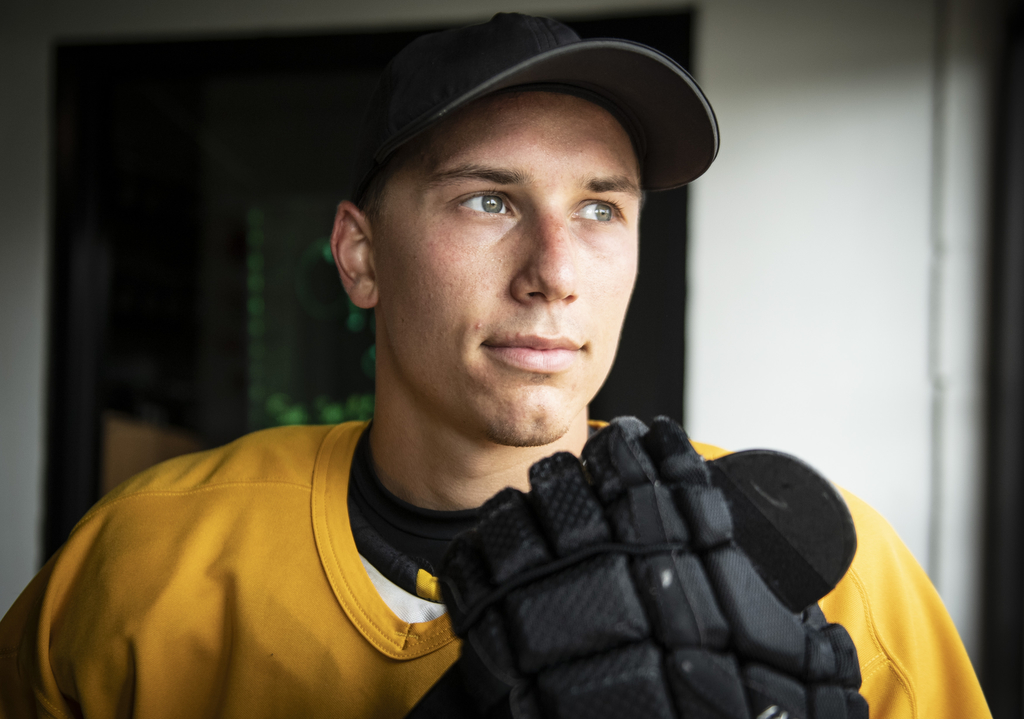
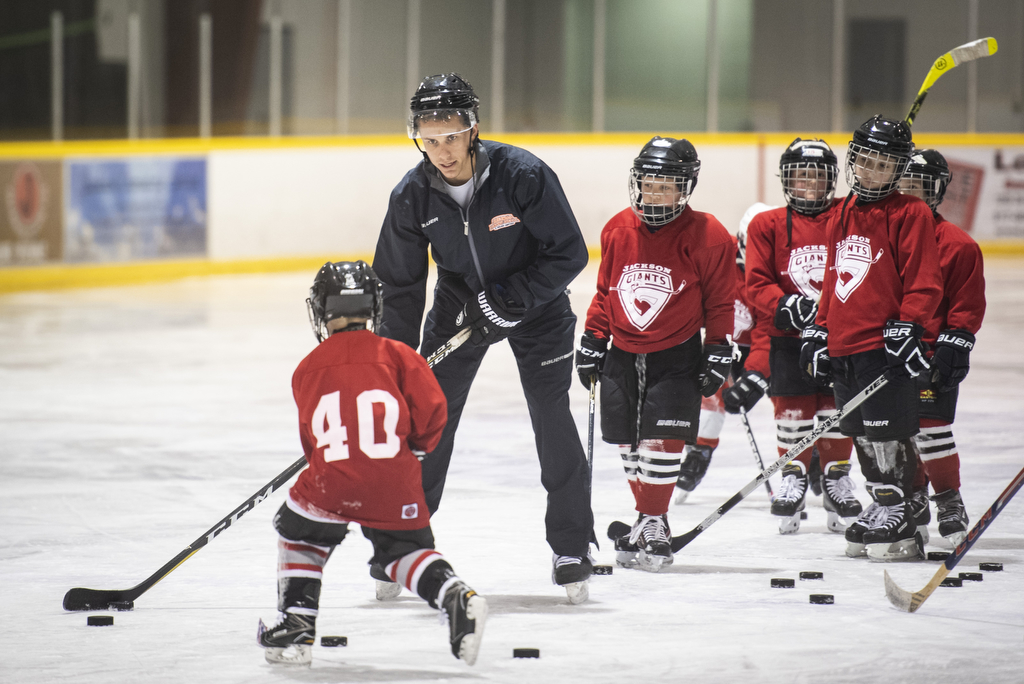
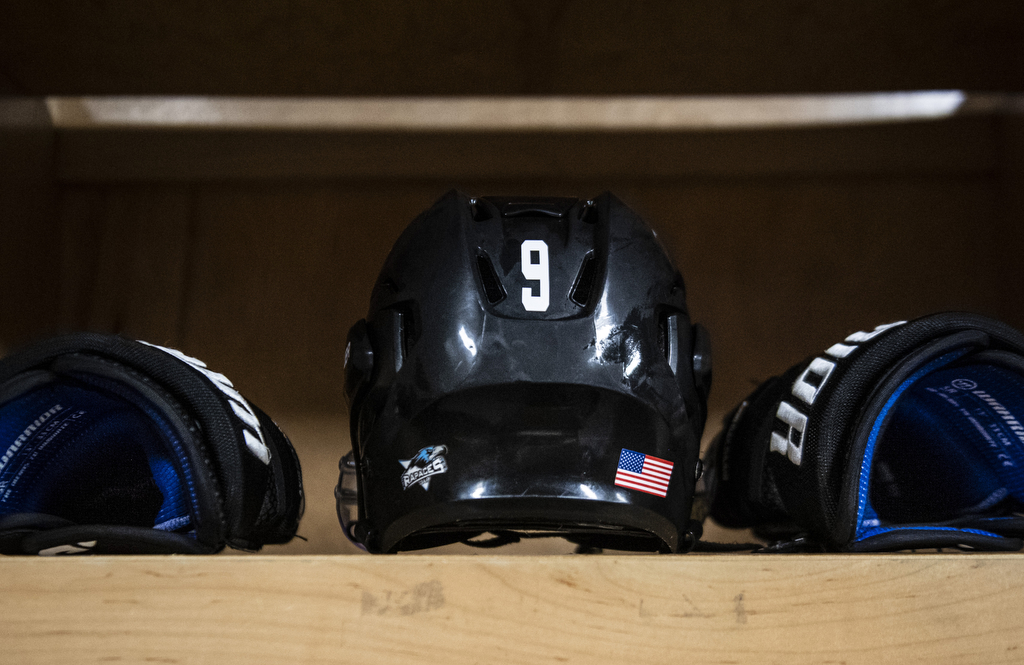
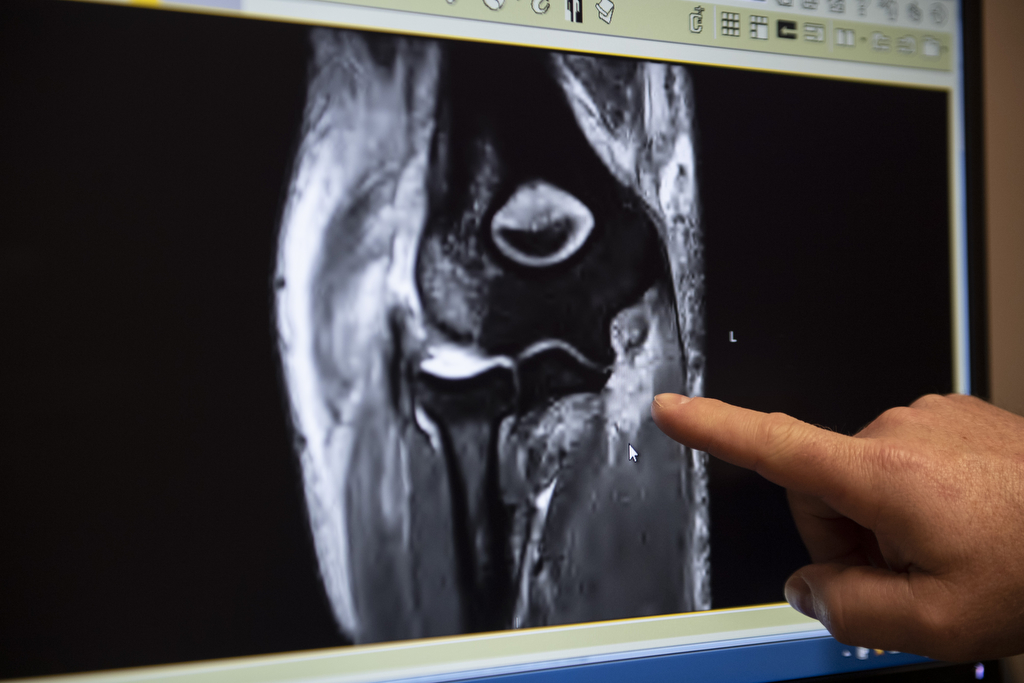
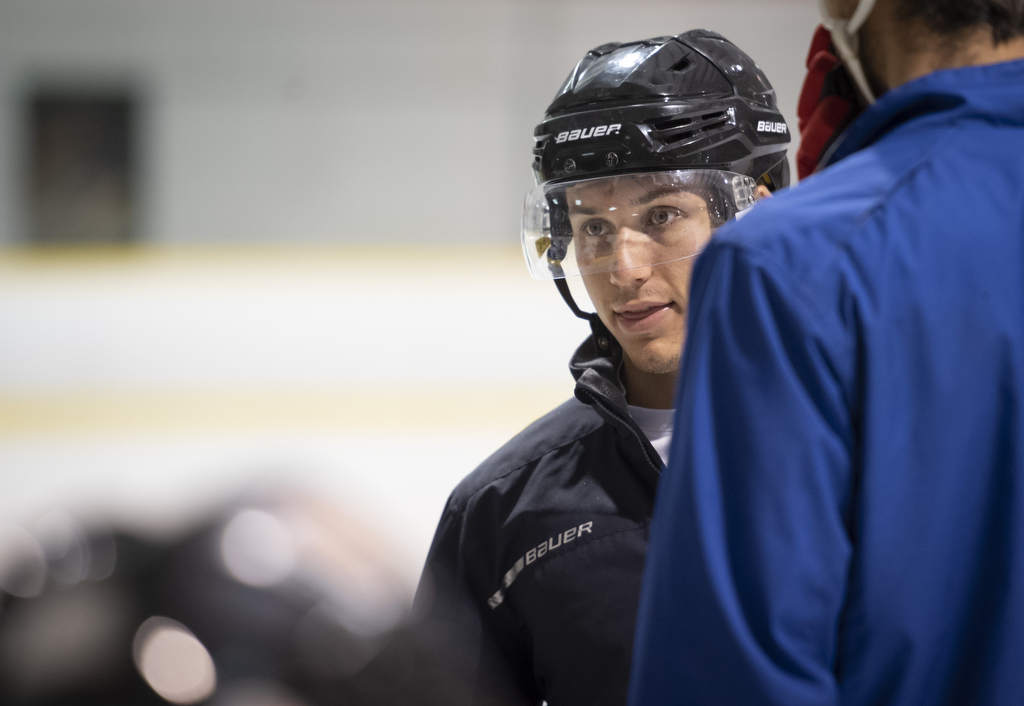
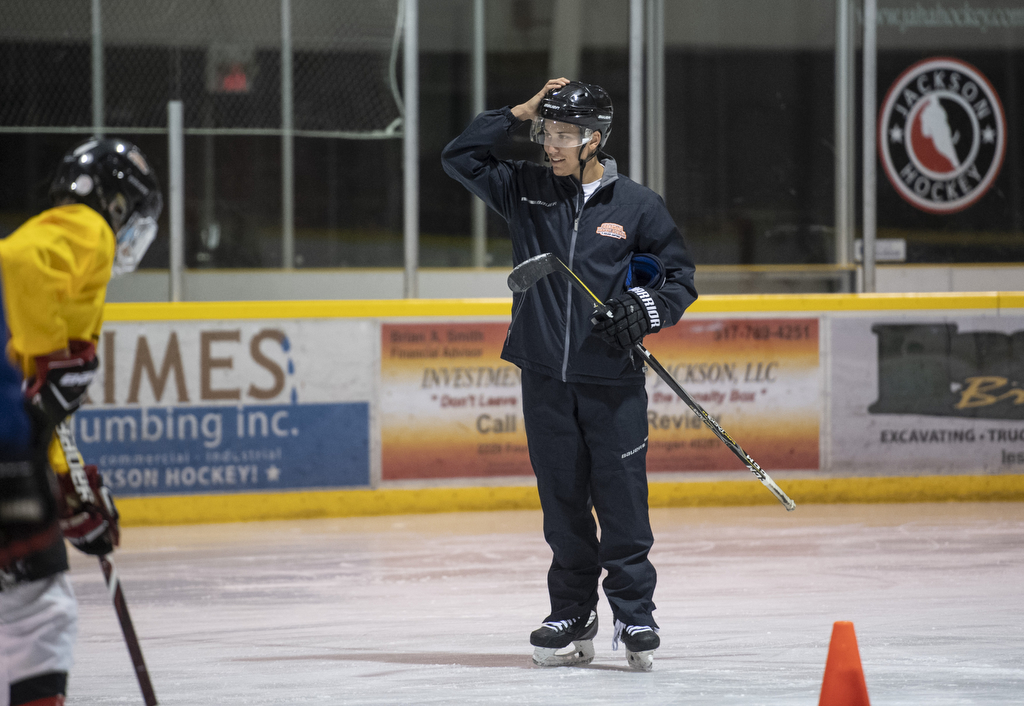
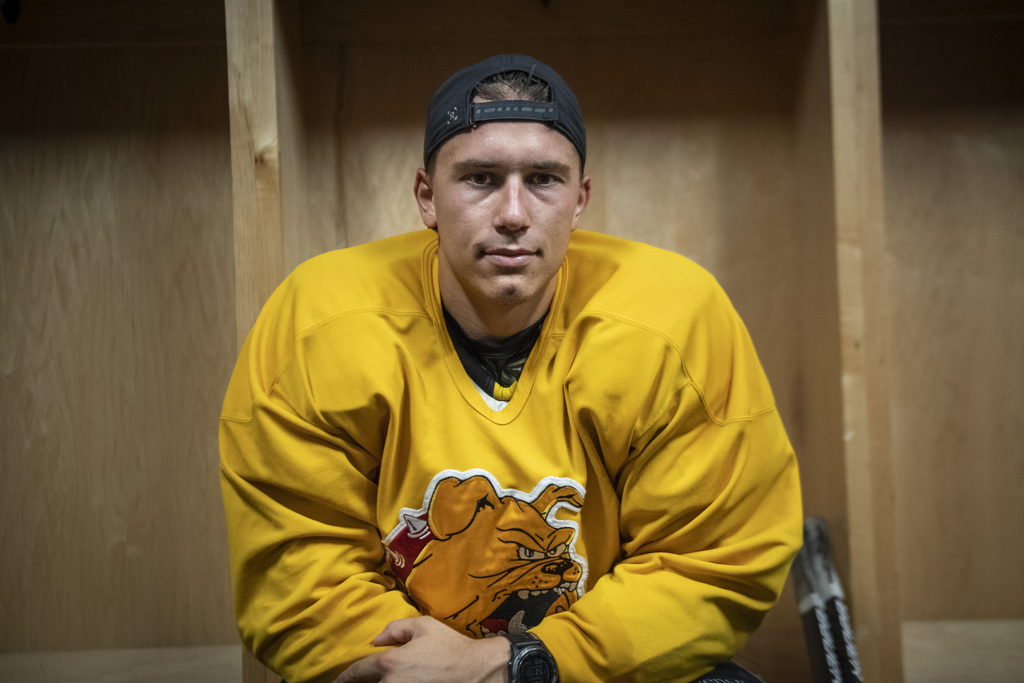
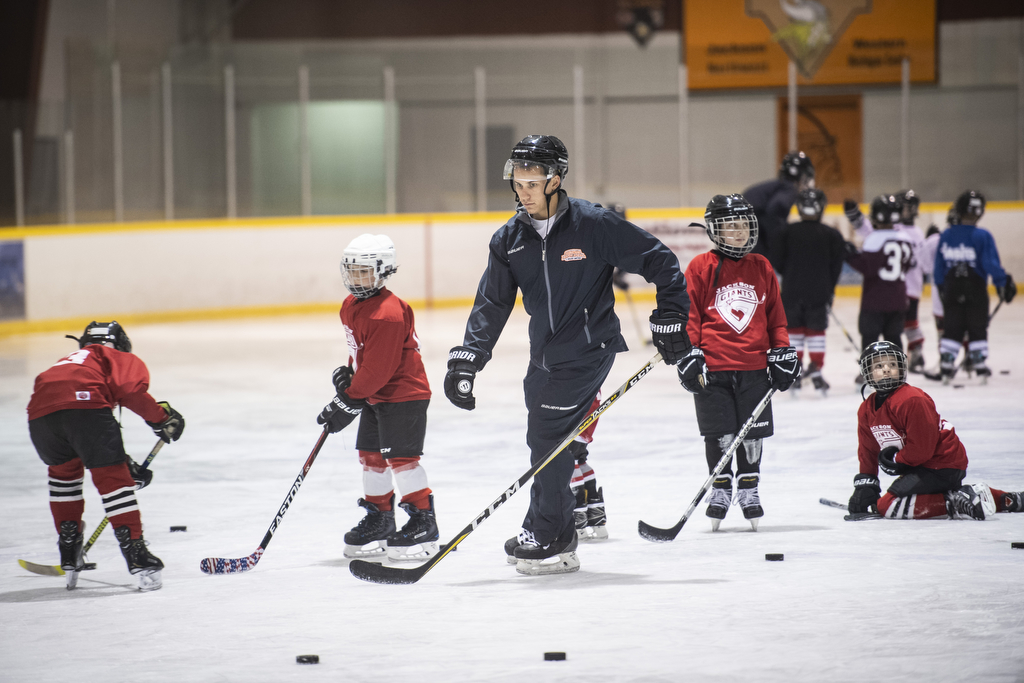
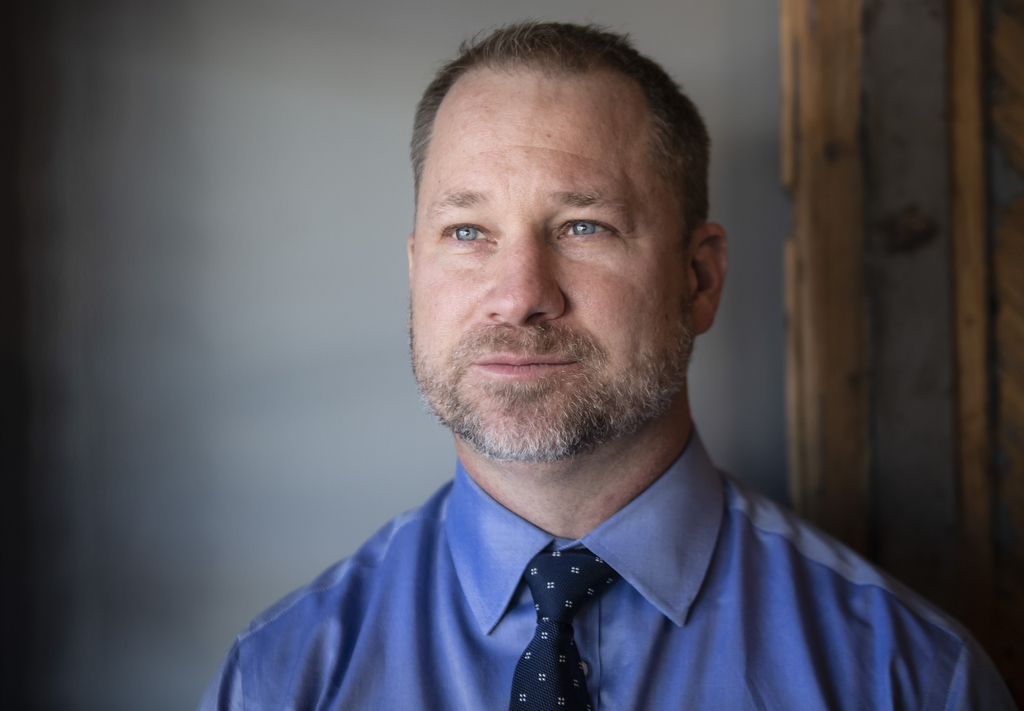
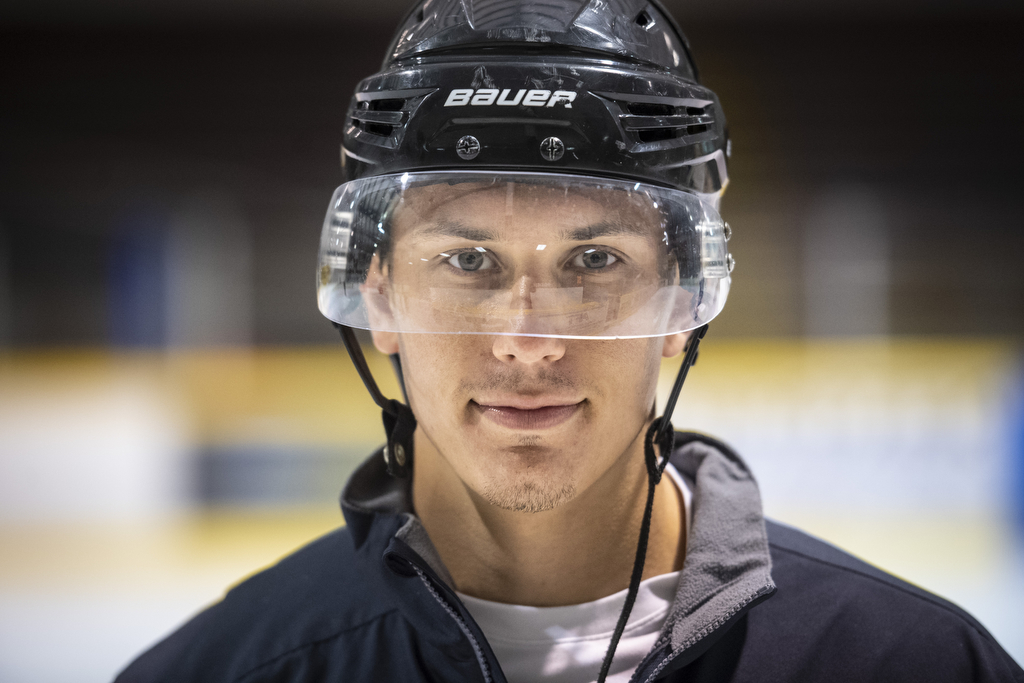

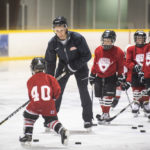
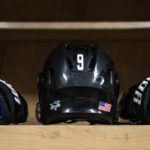
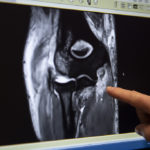
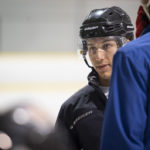
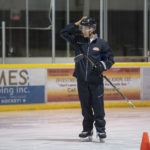
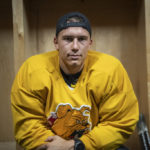



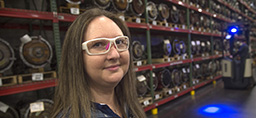 /a>
/a>
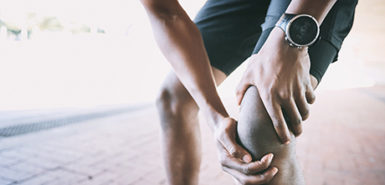 /a>
/a>
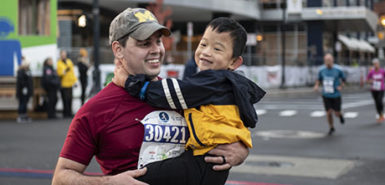 /a>
/a>